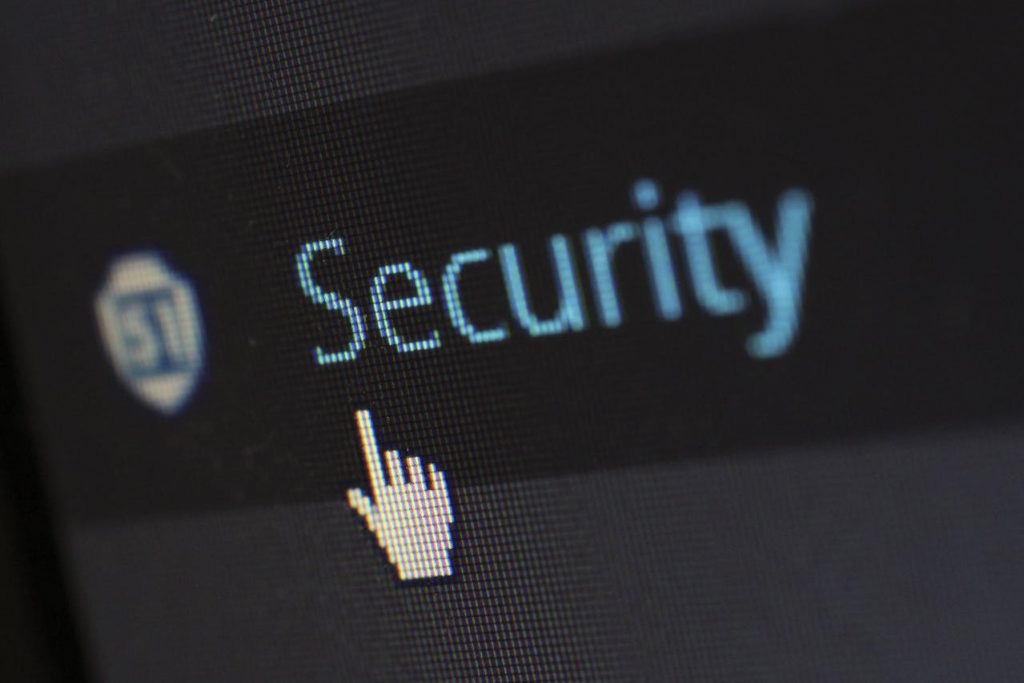In the digital age, the internet has become an integral part of people’s daily lives, influencing everything from how they connect with others to how they conduct business, shop, learn, and entertain themselves. This omnipresence of the internet, while providing numerous advantages, also presents a myriad of security challenges that individuals and businesses must be mindful of. This begs the question: Why is internet safety important?
It is not merely about protecting information; it’s about safeguarding digital lives, upholding privacy, and ensuring the continued function of businesses in the face of evolving threats. Understanding the importance of cybersecurity is the first step in building a more secure digital world. This article will delve into the significance of internet safety and cybersecurity, exploring why it matters for individuals, businesses, and society as a whole.
The Significance of Internet Safety in the Digital Age
In the Digital Age, people’s reliance on the internet has exponentially grown, with personal details, sensitive data, financial transactions, and critical communication all taking place online. This online interaction, while convenient, also exposes individuals to various threats if they do not appropriately protect their data. Here’s how internet safety plays its part in protecting personal data online and what you need to know about the cyber threat landscape and risks.
Protecting Personal Data Online
Personal information is valuable because it can be used to commit fraud or identity theft. Names, addresses, social security numbers, bank account details, and credit card information are all examples of personal data that could be exploited if they fall into the wrong hands.
At the same time, this information is vulnerable because it is often stored on servers that can be breached by hackers and transmitted across networks that can be intercepted. Safeguarding sensitive data is, therefore, critical. Below are several strategies to help secure your personal information online:
Use Strong and Unique Passwords
Avoid using easily guessable passwords like ‘password123’ or ‘123456’. Instead, use a password that is at least 12 characters long and includes a mix of numbers, letters, and symbols. Also, avoid using the same password for multiple accounts.
Enable Two-Factor Authentication
This adds an extra layer of security to your online accounts by requiring you to verify your identity using two different methods before gaining access. You can use a code sent to your phone or an authentication app in addition to your password.
Keep Your Devices and Applications Updated
Regularly updating your devices and applications ensures that you have the latest security patches and fixes, reducing the risk of a cyberattack. You can enable automatic updates to make this process more convenient.
Remember, it’s not just about protecting your information; it’s about protecting your digital life.
Cybercybercrime Threat Landscape and Risks
The cyber threat landscape is complex and constantly changing, with new threats emerging all the time. One of the most common types of threats is malware, which includes viruses, worms, Trojans, ransomware, and spyware. These malicious programs are used by cybercriminals to gain unauthorized access to systems, disrupt their operations, steal sensitive data, or demand a ransom in exchange for decrypted data.
Another prevalent threat is phishing, where cybercriminals attempt to trick individuals into revealing sensitive information such as usernames, passwords, and credit card details by pretending to be a trustworthy entity in an electronic communication. This is often done through deceptive emails or websites.
Denial-of-service attacks (DoS) and Distributed Denial-of-service attacks (DDoS) are other significant threats where malicious actors overload a network, service, or server with a flood of internet traffic to render it unavailable to users.
In addition, man-in-the-middle attacks (MitM) are where criminals alter communication between two parties without their knowledge. This can lead to eavesdropping or stealing of sensitive information.
Not taking adequate internet safety measures can lead to various risks. These include financial loss due to fraud or theft, identity theft, loss of sensitive personal and business information, damage to a business’s reputation, loss of consumer trust, and even potential legal consequences. A robust understanding of these threats, combined with proactive measures, can significantly minimize these risks and help to create a safer online environment.
Impact of Cyber Attacks on Businesses and Entrepreneurs
As the digital landscape expands, businesses and entrepreneurs become prime targets for cyber threats, with potentially devastating consequences. The implications of these cyber attacks can range from minor nuisances to significant financial losses and irreparable damage to an organization’s reputation. This section will delve into the specifics of these impacts and why businesses, particularly startups and small businesses, need to prioritize cybersecurity.
Cybersecurity for Startups and Small Businesses
Startups and small businesses, despite their agility and innovation, often overlook the importance of robust cybersecurity. They become attractive targets for cybercriminals due to limited resources and the perceived vulnerability of their security systems.
Cyber attacks can disrupt business operations significantly. For example, a successful ransomware attack can halt operations until a ransom is paid or the issue is resolved. Data breaches can lead to the loss of proprietary information, giving competitors an advantage. Investing in cybersecurity from the beginning is crucial for startups and small enterprises.
Implementing measures like employee training, system updates, encryption, and network monitoring can secure a small business in the digital landscape. Cybersecurity is not just a technology issue but a business survival issue.
Financial Implications of Cybersecurity Breaches
Cybersecurity breaches can have significant financial implications for businesses, including immediate costs for investigations, data recovery, and legal consultations. The average cost of a data breach in the US is approximately $9.48 million. Additionally, businesses may face ransom payments and indirect costs such as stock value decline and loss of customer trust. Investing in robust cybersecurity measures is crucial to prevent devastating losses.
Navigating the Online World Safely
In this day and age, almost everyone is a digital citizen, traversing the online world for various purposes, be it professional or personal. As you venture more into this digital realm, it becomes increasingly crucial to understand how to navigate it safely. This section aims to provide you with some best practices for internet safety and to discuss the importance of educating employees and remote workers on cybersecurity.
Best Practices for Internet Safety
Maintaining Robust Password Hygiene
As mentioned before, using strong and unique passwords is critical for protecting your personal information online. Additionally, changing your passwords regularly can also minimize the risk of a successful cyber attack.
Utilizing Two-Factor Authentication
As stated earlier, enabling two-factor authentication adds an extra layer of security to your online accounts. It is a simple and effective way to prevent cybercriminals from gaining unauthorized access to your data. You can set up this feature by going into the settings of your online accounts and following the instructions.
Implementing a Reliable Security Suite
Invest in a comprehensive security suite that includes antivirus, anti-malware, and firewall protection. These tools offer real-time protection against threats and can detect and eliminate harmful software before it can cause damage.
By following these best practices, you can significantly bolster your defenses against cyber threats and navigate the online world with greater peace of mind. Remember, cybersecurity is a shared responsibility that requires vigilance and ongoing effort from all of us.
Educating Employees and Remote Workers
In the remote work era, employees often find themselves in a less secure environment, increasing their vulnerability to cyber threats. It’s, therefore, critical to make cybersecurity training and awareness programs a priority. These programs equip employees with the knowledge to identify and respond to cyber threats effectively, making them an integral part of an organization’s defense against cyber attacks.
Effective cybersecurity training for employees should include the following aspects:
Regular and Interactive Training Sessions
Training should not be a one-time event but an ongoing process. Regular training sessions will keep employees up-to-date on the latest threats and security practices. It’s also beneficial to make the training interactive, using real-life scenarios and simulations to make the learning experience more engaging and practical.
Clear Guidelines on Safe Internet Practices
Employees should be provided with clear guidelines on how to handle sensitive data, use strong passwords, recognize phishing attempts, and safely use public Wi-Fi networks. The more specific and actionable these guidelines are, the more effectively they can protect themselves and the organization.
Implementing a Cybersecurity Culture
Promote a culture where every employee feels responsible for cybersecurity. This can be achieved by involving top management in cybersecurity efforts and rewarding employees for proactive behavior.
Above all, remember that cybersecurity training and awareness are not just about preventing attacks but also about building a resilient organization that can effectively respond to and recover from any cyber threats.
Securing Digital Ventures for Tech Enthusiasts and Entrepreneurs
As technology continues to evolve and digital markets proliferate, tech enthusiasts and entrepreneurs are increasingly leveraging the online space for their ventures. However, this digital expansion is not without its challenges, particularly in the realm of cybersecurity.
A keen understanding of these challenges and effective strategies to counter them is crucial for the survival and success of these digital ventures. This section will explore the specifics of securing e-commerce platforms and online ventures and delve into the emerging innovations in cybersecurity technologies that are helping to shape a safer digital landscape.
Securing E-commerce Platforms and Online Ventures
E-commerce platforms and online ventures are prime targets for cyber attacks. To secure these platforms, entrepreneurs can deploy a multi-layered cybersecurity strategy. First, SSL certificates are crucial to encrypt communication between users and the website, safeguarding sensitive data like credit card information and login credentials. Second, a robust firewall can monitor and control network traffic, protecting the website from various cyber threats.
Regular scanning can detect vulnerabilities that hackers might exploit. Automated tools can scan your system for potential vulnerabilities, which should be promptly addressed. Regular software updates prevent cybercriminals from exploiting known security vulnerabilities. Data backup is critical. Having recent backups in a secure offsite location can save your business from disaster. For e-commerce, PCI DSS compliance is a must to protect customer transactions.
Consider cybersecurity insurance to mitigate the financial risk of data breach and recovery. Implementing these strategies ensures a secure online shopping experience and protects online ventures from cyber threats.
Innovations in Cybersecurity Technologies
As technology evolves, so do cybersecurity measures. Some cutting-edge technologies and tools are playing a vital role in enhancing internet safety for businesses and individuals.
Artificial Intelligence (AI) and Machine Learning (ML)
AI and ML are revolutionizing cybersecurity. They can analyze massive amounts of data to track patterns, helping to predict and detect cyber threats more quickly and accurately than traditional methods. They can also automate responses to attacks, reducing the burden on human analysts.
Blockchain Technology
Initially known for its role in cryptocurrency, blockchain technology provides a decentralized and secure way to store and share data. This makes it a potent tool in preventing data tampering and ensuring the integrity of data.
Cloud Security
As more businesses move their operations to the cloud, cloud security has become paramount. Solutions like data encryption, intrusion detection, and identity and access management are being deployed to secure cloud-based assets.
By adopting these innovative technologies and tools, businesses and individuals can significantly enhance their defense against cyber threats, thus bolstering their internet safety.
Conclusion
In today’s digital age, cybersecurity is no longer a luxury but a necessity for everyone, from individuals to businesses, startups, and entrepreneurs. It is essential to continuously educate oneself on the ever-evolving cyber threats and implement robust security measures to safeguard online activities. By developing a culture of cybersecurity and leveraging innovative technologies, you can navigate the online world safely, with increased confidence and peace of mind.
FAQ
What are the consequences of ignoring internet safety measures?
Ignoring internet safety measures can lead to several serious consequences. Cyber threats like identity theft, financial loss, and business disruptions due to cyber-attacks are some of the major risks.




